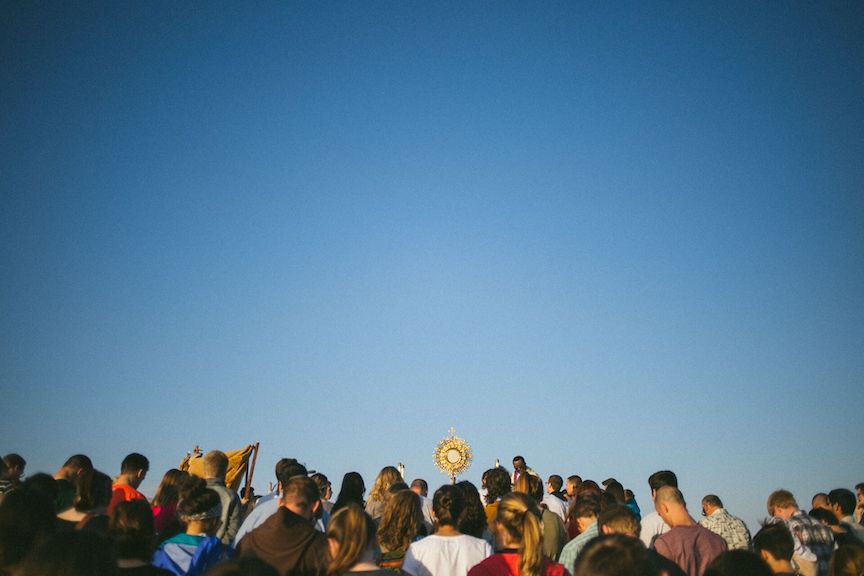Freedom Quotes
by CAPP-USA

Freedom quotes from the Church to help us understand and seek true freedom.
Introduction: Embracing True Freedom
The Catholic Church offers profound insights into the nature of true freedom, emphasizing its role as a cornerstone of human dignity and moral life.
Far from mere license or autonomy, true freedom is the ability to choose the good consistently, aligning with truth and the common good.
The following quotes from Popes Leo XIII, Benedict XVI, St. John Paul II, Francis, and the Catechism of the Catholic Church illuminate how freedom, when rooted in love and responsibility, leads to a flourishing life, while its misuse can lead to alienation and harm.
Quotes about Freedom from the Catholic Church
- “Freedom is the fountainhead from which liberty…flows”. (Pope Leo XIII, 3)
- “When human beings set themselves against God, they…do not become free, but alienated from themselves.” (Pope Benedict XVI)
- “There is no true freedom except in the service of what is good and just. The choice to disobey and do evil is an abuse of freedom and leads to ‘the slavery of sin’.” (Catechism of the Catholic Church, 1733)
- “If it is not exercised well…freedom can lead us far away from God, it can cause us to lose the dignity that he has bestowed on us.” (Pope Francis)
- “[A] corruption of the idea and the experience of freedom, conceived…as an autonomous power of self-affirmation, often against others, for one’s own selfish well-being.” (Pope St. John Paul II, 6)
- We need “light and strength to direct [our] actions to good and to restrain them from evil. Without this, the freedom of our will would be our ruin”. (Pope Leo XIII, 7)
- “In the name of freedom, there has to be a correlation between rights and duties, by which every person is called to assume responsibility for his or her choices”. (Pope Benedict XVI)
- “Excessive intervention by the state can threaten personal freedom and initiative”. (Catechism of the Catholic Church, 1883)
- “Undoubtedly the principle of subsidiarity [is] an expression of inalienable human freedom.” (Pope Benedict XVI, 57)
- The exercise of freedom finds its guarantee and incentive in the right of ownership.” (Pope St. John XXIII, 109)
- “Freedom of conscience is the core of all freedom”. Pope Benedict XVI, Church, Ecumenism and Politics
- “True freedom is fully expressed in love.” (Pope Francis)
- “[T]rue freedom is not advanced in the permissive society, which confuses freedom with license…It is a caricature of freedom…Such an attitude is destructive of freedom and peace.” (Pope St. John Paul II)
- “If it is not used well, freedom can lead us away from God, can make us lose the dignity with which He has clothed us…When it is not* shaped by the Gospel, freedom can turn into slavery: slavery of sin.” (Pope Francis)
- “It has been rightly pointed out that freedom is not only the choice for one or another particular action; it is also…a decision…for or against the Truth”. (Pope St. John Paul II, 65)
- ” “[T]he autonomy of reason cannot mean that reason itself creates values and moral norms…this sort of alleged autonomy would contradict the Church’s teaching on the truth about man. It would be the death of true freedom”. (Pope St. John Paul II, 40)
- People “may think they are free, but they are being led astray and become lost amid the errors and illusions of aberrant ideologies. Freedom itself needs to be set free, and the darkness in which mankind is groping needs to be illuminated.” (Pope Benedict XVI)
- “The person who abandons himself totally in God’s hands does not become God’s puppet, a boring ‘yes man’; he does not lose his freedom. Only the person who entrusts himself totally to God finds true freedom, the great, creative immensity of the freedom of good.” (Pope Benedict XVI)
- “Building a future of freedom requires love of the common good and cooperation in a spirit of subsidiarity and solidarity.” (Pope Francis)
- “[T]here can be no freedom apart from or in opposition to the truth”. (Pope St. John Paul II, 96)
Conclusion: Living True Freedom
The Catholic Church’s teachings on freedom challenge us to move beyond superficial notions of autonomy and embrace a life of purposeful choices rooted in truth, love, and the common good.
These quotes inspire us to cultivate habits of virtue, resist the allure of selfishness or license, and seek a freedom that uplifts both the individual and society.
By aligning our actions with God’s truth, we discover the “creative immensity” of true freedom that leads to lasting peace and fulfillment.





